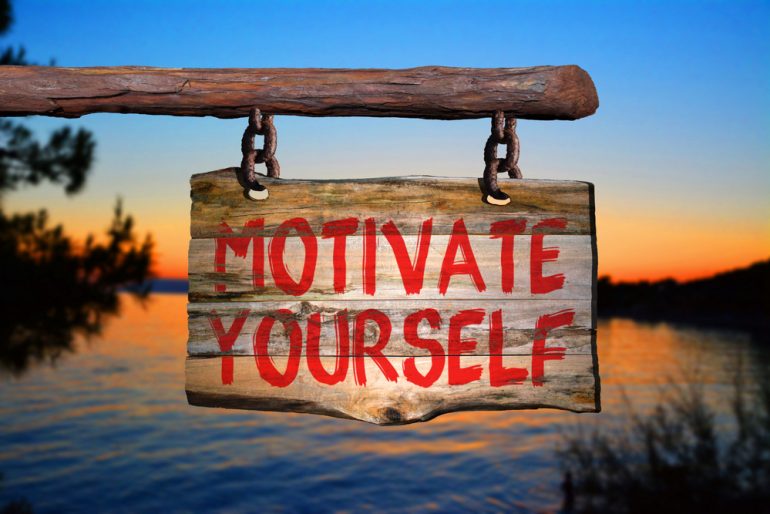How to motivate yourself to exercise
What’s stopping you getting active? Overcome those obstacles so you can see the many benefits.
There are many good reasons to exercise, says Angela Hartley, a cardiac nurse and personal trainer: “The fitter you are, the less strain there is on your heart. Over time, exercise can lower blood pressure and help keep your blood vessels flexible as you age. Daily activities like getting up the stairs become easier as you get stronger from exercise.”
And it’s a mood booster! “There’s the feel-good hormones as well as the sense of pride you can get,” Mrs Hartley says. But for all the benefits, many things can hold us back. Let’s pick some of those apart.
If you haven’t got time to exercise
“If you’re busy with your family or job, exercise can fall down the priority list. Breaking it into bitesize chunks that you can fit consistently into your life can make it manageable,” says Mrs Hartley.
“Can you do a couple of squats every time you go to the toilet or make a cup of tea? Can you put one song on and do a little dance before every meal or go for a short, 10-minute walk after dinner? Can you get up just five minutes earlier to do some breathing and stretching exercises? You’ll probably feel better for having sneaked these exercises into your day.”
If you’re worried exercise isn’t safe for you
Mrs Hartley says: “In general exercise is very safe if you keep to low-to-moderate intensity levels. That means you can still talk comfortably while exercising. If you’ve got a heart condition, check with your doctor before starting any new exercise routine.
“You are probably already doing some form of exercise as part of your daily routine without realising it: getting out of bed is a kind of strength training, getting on and off the toilet is a kind of squat. Exercise is just doing those activities for slightly longer.”
For many people Mrs Hartley sees in her cardiac rehab sessions, fear is often the biggest barrier. “But once people understand what safe levels of exercise are, then they feel empowered, knowing nothing bad will happen.”
Mrs Hartley recommends attending cardiac rehab classes if you are invited to attend them, or finding ‘phase four’ classes – these are run in local community settings by instructors trained to understand the needs of people with heart conditions. They can help you learn what level of exercise is right for you.
If you worry about looking foolish while exercising
Many people who are new to exercise worry they’ll stand out if they join a gym or class. Mrs Hartley says that cardiac rehab or phase four classes are often a good place to start, as “they’ll be many people in a similar position to you”.
“If you do try a gym, or say, a yoga or Zumba class, remember everyone was a beginner once. Gym staff are there to guide you – so get them to show you how to use the equipment. Tell your class instructor you have a heart condition – they might be able to adapt exercises for you. Tell them you might sit out some of the exercises.”
Bring a friend or family member with you, if it helps you to feel more comfortable. Or find ways to get active at home. “Go for a walk, dance around your kitchen, or do online videos such as the British Heart Foundation’s, which start with basic seated exercises.”
If you feel like you don’t have the energy
There are lots of reasons for low energy levels, says Mrs Hartley. You could be recovering from a surgery or an event such as a heart attack. If you’re consistently low in energy, your doctor may want to rule out low iron or vitamin B12 levels, or any thyroid problems.
If you’ve ruled out medical causes, you might just need to start off slowly. “Exercise actually helps energise you by improving the blood flow around your body. You may need to start small and build up over time. But it will snowball: as you exercise more often, you’ll find your energy levels pick up.”
On dark, wet winter days, we can all struggle to find motivation. “Tell yourself you’re just going to do a couple of minutes, you might find yourself going longer than expected.”
If you have physical difficulties
“People often come to my classes with back or knee problems. It’s hard if you’re in pain or have mobility issues,” says Mrs Hartley.
“Find an activity that won’t make things worse. Can you do seated exercises? You could get a seated pedal exerciser to put on the floor in front of your chair so you don’t have to climb onto an exercise bike. Or have a dance while sitting on a chair. Can you exercise holding onto a wall or stable chair to help you balance?”
If you find exercise boring
“Brushing your teeth is boring but we do it every day for our health. If you find exercise dull, there are ways to make it more fun,” says Mrs Hartley.
She suggests: “Can you listen to a podcast or music while walking or walk with a friend so you can chat while doing it? Or have a favourite TV show that you only let yourself watch while exercising?”
And working on your fitness doesn’t have to mean formal exercise: “Getting physically active could mean doing the gardening or playing with grandkids, it all adds up.”

